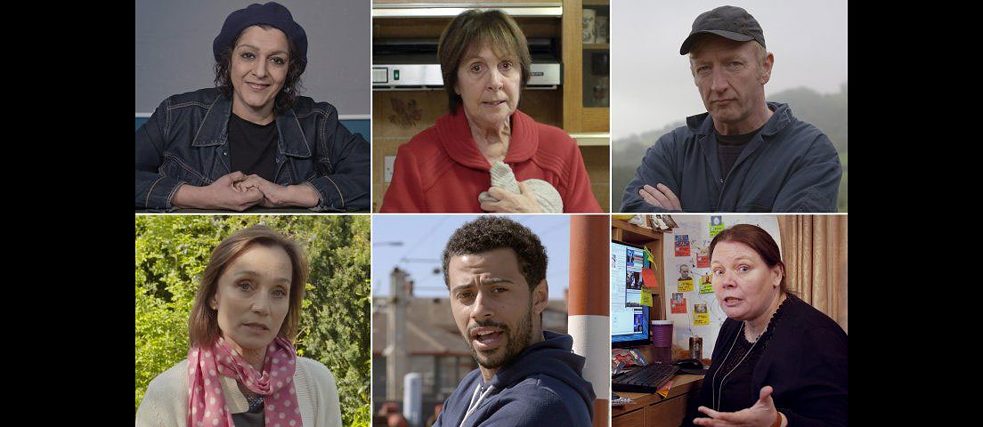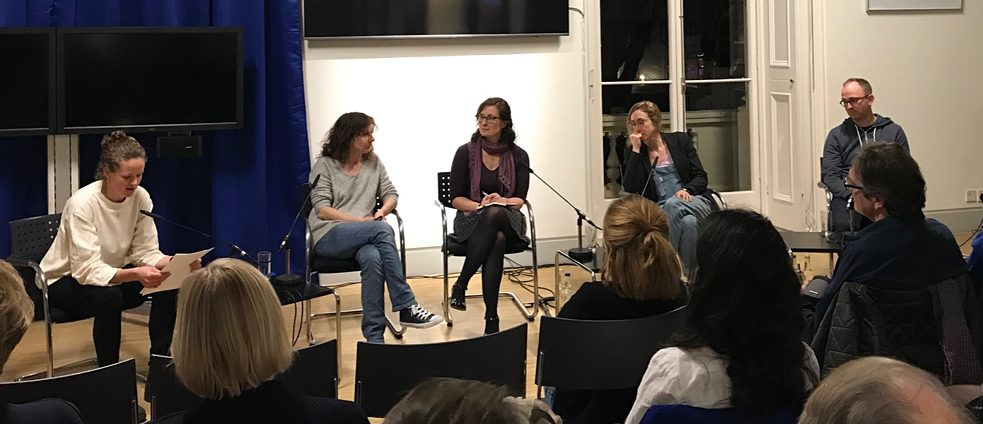Conversation & Film screening
Dramas from a Divided Europe

“We voted to leave Europe but we wanted to leave England.” This chilling statement, delivered by actress Kristin Scott Thomas, set the tone of the evening at Goethe-Institut London on Tuesday, March 26.
The short film Time to Leave, written by David Hare and starring Thomas, was one of a selection screened from The Brexit Shorts — a series of fictional monologues commissioned by The Guardian and Headlong Theatre—which included perspectives from a disgruntled Welsh dairy farmer, a British-born Indian Brexiteer, who is conflicted over immigration policy and a mum from Northern Ireland, who knows what it means to be divided.
By Alexandra Genova
The evening was part of an ongoing series of events commissioned by Goethe-Institut London, called Europe Actually, which explores “a European common identity”. But while the Brexit Shorts series, launched online in June 2017, attempted to get under the skin of Britain’s stance on Brexit, were they to be written now, the reflective calm of the monologues may well be tinged with a note of panic. Indeed, the political paralysis cloying Westminster right now was felt in the room and audience members struggled to come to a conclusive answer about why Britain voted to leave or what it means for the future of the European Union.
Neanderthals died out because they were not able to build bigger communities. So the ability of us to build bigger units is what made us survive.
This play was written as part of a new series called The European Project, which will launch in autumn 2019 and is co-produced by The Guardian and Headlong Theatre as well. This new series consists of five films filmed on location in France, Germany, Ireland, Sweden and Poland with writers and actors from each country, performing in their native language. The films look at each country's unique relationship to the EU through a fictional story arc that demonstrates how the economic and political affects the individual.
In fact, identity is fluid: we can be English, British and European.
Another audience member asked if, while touring The Brexit Shorts in the continent, the team found there was a sense of common European identity. The Guardian’s arts & culture commissioning editor Jess Gormley replied: “The sad thing is that the Brits probably have the least sense of European identity. The European audience noted that we are not talking about Europe in these films, we’re in fact talking about ourselves.” In contrast, von Mayenburg said that growing up as a German, national identity was “more of a burden. When you’re growing up you think: I’m German okay, that's bad, but I’m also European; to have this other vision, a project you are part of, is something beautiful.”
While The Brexit Shorts series aimed to give a cross-section of opinions, the perspectives offered by the panelists were, by one audience member’s admission, narrow. One woman argued that the panel “have known nothing other than the EU” and that it would have been helpful to have the perspective of someone from another generation. Her challenge highlighted other fault lines that inevitably emerge when discussing Brexit such as ‘old versus young’ or ‘London versus the rest of the UK’.
The comments from a cross-European panel and international audience reiterated what is perhaps sometimes forgotten; each European country has its own relationship and very specific reasons for being a member of the EU. And while the discussion, and the films themselves, may have been inconclusive, events such as this show the merits of cultural engagement—especially with subjects as generation-defining as Brexit.
